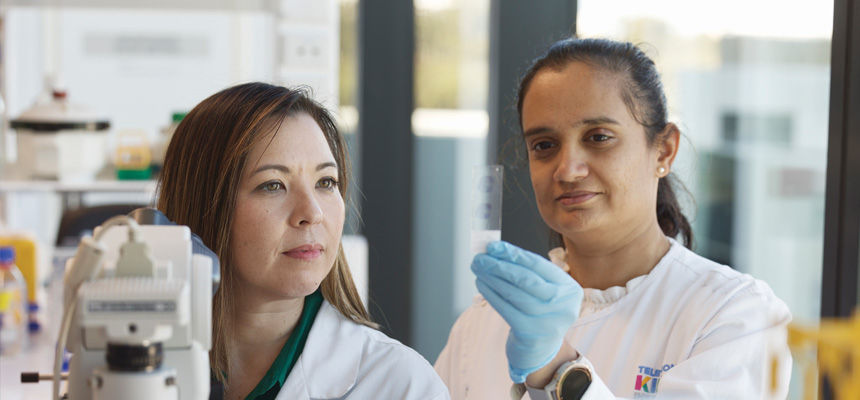Search

The WA Kids Cancer Centre has a suite of world-leading research projects to unlock new treatments for childhood cancers.
Research
Clinical outcomes and severity of laboratory-confirmed RSV compared with influenza, parainfluenza and human metapneumovirus in Australian children attending secondary careAcute lower respiratory infections (ALRIs) are a major contributor to the global infectious disease burden and a common cause of hospitalisation for children under 2 years. We compared clinical severity in children hospitalised with respiratory syncytial virus (RSV), parainfluenza virus (PIV), human metapneumovirus (hMPV) and influenza virus (IFV).
Research
Invasive fungal disease and antifungal prophylaxis in children with acute leukaemia: a multicentre retrospective Australian cohort studyInvasive fungal disease is a common and important complication in children with acute myeloid leukaemia (AML). We describe the epidemiology of IFD in a large multicentre cohort of children with AML.
Research
Exposure to biodiesel exhaust is less harmful than exposure to mineral diesel exhaust on blood-brain barrier integrity in a murine modelEmerging data suggest that air pollution is a persistent source of neuroinflammation, reactive oxygen species, and neuropathology that contributes to central nervous system disorders. Previous research using animal models has shown that exposure to diesel exhaust causes considerable disruption of the blood-brain barrier, leading to marked neuroinflammation.
Research
Antibodies in breast milk: Pro-bodies designed for healthy newborn developmentThis manuscript sheds light on the impact of maternal breast milk antibodies on infant health. Milk antibodies prepare and protect the newborn against environmental exposure, guide and regulate the offspring's immune system, and promote transgenerational adaptation of the immune system to its environment.
Research
Patient-related factors impact the implementation of inpatient antibiotic allergy delabelingThe clinical consequences of an antibiotic allergy label are detrimental, impacting health care delivery and patient outcomes. We assessed hospital inpatients with intent to offer free antibiotic allergy labeling assessment within a randomized controlled trial. We sought to determine the feasibility of establishing an adult antibiotic allergy delabeling service in a Western Australian tertiary public hospital.
Research
Short-term outcomes in infants following general anesthesia with low-dose sevoflurane/dexmedetomidine/remifentanil versus standard dose sevoflurane (The TREX trial)The Trial Remifentanil DEXmedetomidine trial aimed to determine if, in children < 2 years old, low-dose sevoflurane/dexmedetomidine/remifentanil anesthesia is superior to standard dose sevoflurane anesthesia in terms of global cognitive function at 3 years of age.
Research
Optimising HIV spending in 12 eastern European and central Asian countries: a modelling studyAndrew Shattock PhD, MSc, BSc (Hons) Principal Research Fellow andrew.shattock@thekids.org.au Dr Andrew Shattock is a Principal Research Fellow of
Research
Artemisinin combination therapy at delivery to prevent postpartum malaria: A randomised open-label controlled trialAlthough the incidence of malaria is increased in women in endemic areas after delivery compared to non-pregnant women, no studies have assessed the benefit of presumptive antimalarial treatment given postpartum.
Research
Phage therapy to treat cystic fibrosis Burkholderia cepacia complex lung infections: perspectives and challengesgeBurkholderia cepacia complex is a cause of serious lung infections in people with cystic fibrosis, exhibiting extremely high levels of antimicrobial resistance. These infections are difficult to treat and are associated with high morbidity and mortality.
